Take the time to honor and support your friends and colleagues, be sure to add the division award winners’ talks to your calendar, they are scheduled in various symposia throughout the week.
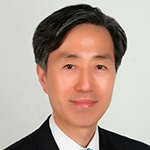 Electronics and Photonics Division Award
Electronics and Photonics Division Award
Monday, May 14 | 0800h
Washington State Convention Center, Room 213
Technological Issues and Design Rules of Electrodes for High-Efficiency GaN-Based Light-Emitting Diodes
By Tae-Yeon Seong
Tae-Yeon Seong received his PhD degree in materials science from the University of Oxford in 1992. After two years as a postdoctoral fellow, he joined the Gwangju Institute of Science and Technology where he served as department chair and director for the Brain Korea 21 Centre for Advanced Materials.
In 2005, Seong moved to the Department of Materials Science and Engineering at Korea University where he served as department chair and director for Brain Korea 21 Centre for Advanced Device Materials (2011-2016). He also served as Associate Dean of Research in the university’s College of Engineering (2014-2015). Seong was president of the Korea Society of Optoelectronics in 2014. He was also an advisory committee member of the Ministry of Education of Korea (2005-2008). His current research interests include integration of HEMT (TFT) and µ-LEDs, LEDs for general illumination, displays, and bio-medical applications.
Seong has authored and co-authored approximately 430 papers and holds 230 patents issued or pending. He is a fellow of ECS, the Institute of Physics (UK), and SPIE. He is a life member of ECS and served as an editorial advisory committee member for the ECS Journal of Solid State Science and Technology and ECS Solid State Letters.
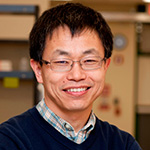 Energy Technology Division Research Award
Energy Technology Division Research Award
Monday, May 14 | 1400h
Washington State Convention Center, Room 611
Hydroxide Exchange Membrane Fuel Cells for Affordable Zero-Emission Cars
By Yushan Yan
Yushan Yan joined the University of Delaware (UD) as the Distinguished Engineering Professor in the Department of Chemical and Biomolecular Engineering in 2011. He became the Founding Associate Dean for Research and Entrepreneurship in 2014. Before joining UD, he held the positions of Department Chair at the University of California Riverside (UCR) and senior staff engineer at Allied Signal.
His recognitions include the Nanoscale Science and Engineering Forum Award from the American Institute of Chemical Engineers, Donald Breck Award from the International Zeolite Association, Fellow of the American Association for the Advancement of Science, University of California Presidential Chair, and the inaugural UCR University Scholar. He has been an inventor on over 20 issued or pending patents. His research has led to more than 200 widely cited publications and extensive news coverage.
Yan earned a BA in chemical physics at the University of Science and Technology of China, studied heterogeneous catalysis at the Dalian Institute of Chemical Physics of the Chinese Academy of Sciences, and earned a doctoral degree in Chemical Engineering at the California Institute of Technology.
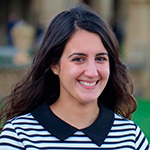 Energy Technology Division
Energy Technology Division
Supramaniam Srinivasan Young Investigator Award
Wednesday, May 16 | 1720h
Washington State Convention Center, Room 603
Enhanced Oxygen Electrocatalysis By Means of Electronic and Geometric Effects
By Marίa Escudero-Escribano
Marίa Escudero Escribano studied chemical engineering at the University of Extremadura in Spain. She obtained her PhD in electrocatalysis and surface nanostructuring from the Autonomous University of Madrid in 2011, supervised by Angel Cuesta. Her PhD was conferred with the “best PhD in chemistry in the region of Madrid” by the Spanish Royal Society of Chemistry (RSEQ) and “best PhD thesis related to hydrogen energy and fuel cells” by the Spanish Hydrogen Association and Spanish Association of Fuel Cells.
In 2012, she started her postdoctoral research with Ib Chorkendorff at Danmarks Tekniske Universitet. In 2014, she was awarded the Sapere Aude: Research Talent Grant, from the Danish Council for Independent Research. Thanks to this grant, she spent two years in Thomas Jaramillo’s group at Stanford University.
Since March 2017, Escudero Escribano is an assistant professor at the Department of Chemistry at the University of Copenhagen, where she leads the NanoElectrocatalysis group. Her research has been recognized by numerous awards for young researchers, including the European Young Chemist Award (2016) and the CIDETEC Award (2016).
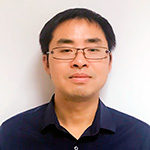 Energy Technology Division
Energy Technology Division
Graduate Student Award sponsored by Bio-Logic
Wednesday, May 16 | 0820h
Washington State Convention Center, Room 608
Understanding Crosstalks in Li-Ion Cells
By Deijun Xiong
Deijun Xiong completed his PhD in chemistry at Dalhousie University in October, 2017 under the supervision of Jeff Dahn.
During his PhD, he mainly focused on understanding the failure of high voltage LiNixMnyCo(1-x-y)O2 (NMC) cells and developing functional electrolyte for high voltage NMC cells. He put forward a novel “pouch bag” method to deepen understanding of the crosstalks occurring in Li-ion cells. He provided new support that oxygen can be released from charged polycrystalline NMC materials rather than single crystal NMC materials at mild temperature at high voltage. He also made contributions to develop ethylene carbonate-free electrolytes for high voltage NMC cells.
In December 2017, Deijun joined Shenzhen Capchem Technology Co. Ltd (one of the leading Li-ion battery and supercapacitor electrolyte companies in the world) as vice director of research and development to develop functional electrolytes for Li-ion battery and supercapacitor.
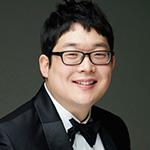 IE&EE Division H. H. Dow Memorial
IE&EE Division H. H. Dow Memorial
Student Achievement Award
Wednesday, May 16 | 0800h
Washington State Convention Center, Room 608
Understanding the Mn-Based Oxide Electrode Materials and Beyond from First Principles and Experiment
By Soo Kim
Soo Kim received his PhD in materials science and engineering at Northwestern University in 2017 specializing in research and development of advanced battery materials. He received his BSE in chemical engineering at the University of Michigan in Ann Arbor in 2008 and MS in chemical engineering at Carnegie Mellon University in 2009.
Before pursuing a doctorate degree in computational materials research, he worked at Samsung to develop Li-ion battery cathodes at industrial-scale (2010-2011), and as a staff scientist at the Korea Institute of Science and Technology with Drs. Byung-Won Cho and Kyung Yoon Chung (2011-2013) to experimentally synthesize more advanced cathode materials.
Kim has co-authored over 30 patents and peer-reviewed journal papers, and has been a recipient of multiple awards including the ECS Edward G. Weston Summer Research Fellowship (2016), Northwestern Computational Research Day Poster Competition Award (2016), ECS Battery Division Travel Grant (2014), and Fifty for the Future Award from Illinois Technology Foundation (2013). Kim is currently a postdoctoral researcher at the Massachusetts Institute of Technology and is supervised by Prof. Yang Shao-Horn. He is concentrating on the synthesis in conjunction with performing density functional theory calculations to design functional materials for electrochemical energy conversion and storage applications.
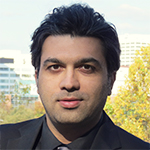 IE&EE Division Student Achievement Award
IE&EE Division Student Achievement Award
Sunday, May 13 | 1330h
Washington State Convention Center, Room 607
Mitigating Ionic and Water Transport through Polymeric Membranes in All-Vanadium Redox Flow Batteries Via Design, Engineering, and Prototyping Novel Asymmetric Cell Topologies
By Yasser Ashraf Gandomi
Yasser Ashraf Gandomi is currently a PhD candidate at the University of Tennessee, Knoxville (UTK) under the supervision of Dr. Matthew Mench. He also received his MS in mechanical engineering with a minor in computational sciences from UTK. He holds BS and MS degrees in mechanical engineering from the University of Tabriz.
Ashraf Gandomi has worked on multiple projects funded by the Department of Energy and industry. His research has focused on the design, engineering, modeling, and prototyping of electrochemical conversion devices including redox flow batteries, polymer electrolyte fuel cells, and electrochemical sensors.
He is a member of four honor societies and is a contributing author for the International Association of Hydrogen Energy (IAHE) electronic newsletter and Assistant Subject Editor for its International Journal of Hydrogen Energy. His accomplishments have been recognized via several institutional awards at UTK with honors that include the Outstanding Graduate Student Award and Extraordinary Professional Promise Award. Ashraf Gandomi also won a best presentation award at the Fifth International Education Forum on Environmental and Energy Science in 2016. He is the recipient of a University of Tennessee Chancellor’s Graduate Fellowship and an IAHE Fellowship.
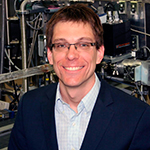 Nanocarbons Division
Nanocarbons Division
SES Young Investigator Award
Monday, May 14 | 1400h
Washington State Convention Center, Room 201
Bottom-up Synthesis of Semiconducting Graphene Nanoribbons via CVD
By Michael Arnold
Michael S. Arnold is currently Professor of Materials Science and Engineering at the University of Wisconsin-Madison. There, he has directed the Advanced Materials for Energy and Electronics Group since 2008.
Arnold graduated summa cum laude from the University of Illinois at Urbana-Champaign with a BS in electrical engineering in 2001. He earned his PhD in 2006 from Northwestern University in materials science and engineering under Professors Mark Hersam and Sam Stupp. He conducted postdoctoral research at the University of Michigan at Ann Arbor from 2006-2008 with Professor Stephen Forrest.
Arnold has been a recipient of various awards throughout his career including the National Science Foundation CAREER Award (2014) and the American Chemical Society’s Arthur K. Doolittle Award (2012). His work addresses fundamental challenges – in controlling the growth, processing, ordering, and heterogeneity of nanomaterials and in understanding phenomena beyond the scale of single nanostructures – that must be overcome to exploit nanomaterials in technology. Arnold’s research has resulted in 95 journal publications and 15 patents/patent applications.
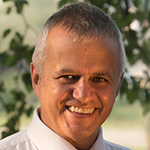 Organic and Biological Electrochemistry Division
Organic and Biological Electrochemistry Division
Manuel M. Baizer Award
Monday, May 14 | 0800h
Washington State Convention Center, Room 616
Molecular Electrochemistry of Fragile and Soft Molecular Systems
By Flavio Maran
Flavio Maran is Professor of Physical Chemistry in the Department of Chemistry at the University of Padova, where he leads the Molecular Electrochemistry and Nanosystems Group. He obtained his PhD in chemistry at the University of Padova in 1980. Maran has been visiting scientist and professor at the National Research Council of Canada, University of Western Ontario, Université de Sherbrooke, Utah State University, University of La Laguna, Temple University, Princeton University, Okayama University, and Kyoto University.
Maran is a fellow of the Japan Society for the Promotion of Science and is the recipient of the 2014 Jaroslav Heyrovsky Prize for Molecular Electrochemistry awarded by the International Society of Electrochemistry (ISE). He is on the editorial board or acts as section editor of various scientific journals and is a regular organizer of ECS and ISE symposia. His mentor was the late Elio Vianello, one of the fathers of molecular electrochemistry.
Maran has always been an advocate of the molecular approach to address scientific problems and thus of the importance of explaining the fine details of electrochemical processes on a true molecular basis. His research focuses on molecular and organic electrochemistry, monolayer-protected gold clusters, electron-transfer reactions, monolayers and biomimetic membranes on electrodes, and electrochemical biosensors.




